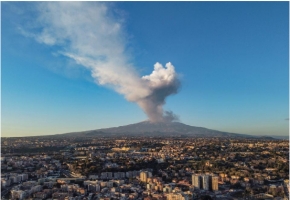Cacti replacing snow on Swiss mountainsides due to global heating

The residents of the Swiss canton of Valais are used to seeing their mountainsides covered with snow in winter and edelweiss flowers in summer. But as global heating intensifies, they are increasingly finding an invasive species colonising the slopes: cacti.
Authorities say cactus species belonging to the genus Opuntia, or prickly pears, are proliferating in parts of Valais, encroaching on natural reserves and posing a biodiversity threat.
Opuntia species and similar cacti have also proliferated in some of the hills around the capital of Valais, in Sion, where estimates suggest Opuntia plants now make up 23-30% of the low vegetation cover. Their presence has also been reported in neighbouring Alpine regions.
Biologists say Opuntia have been present in Valais at least since the late 18th century, when it was imported from North America.
But authorities believe that a warmer climate in the Alps, allowing for longer vegetation periods, and the diminishing snow cover might be creating the ideal conditions for them to spread.
Snow is becoming rarer at lower altitudes, even in the Alps. The number of snow days under 800 metres of altitude in Switzerland has halved since 1970.
Temperatures across the range have been rising twice as fast as the global average, and average temperatures in Switzerland are already 2.4C warmer than 1871-1900 averages.
Preventing Opuntia from proliferating will not be an easy task. The plants reproduce easily, growing back even when felled, stepped on by hikers or left dry for months, and recover quickly after they are uprooted.
Source: The Guardian







